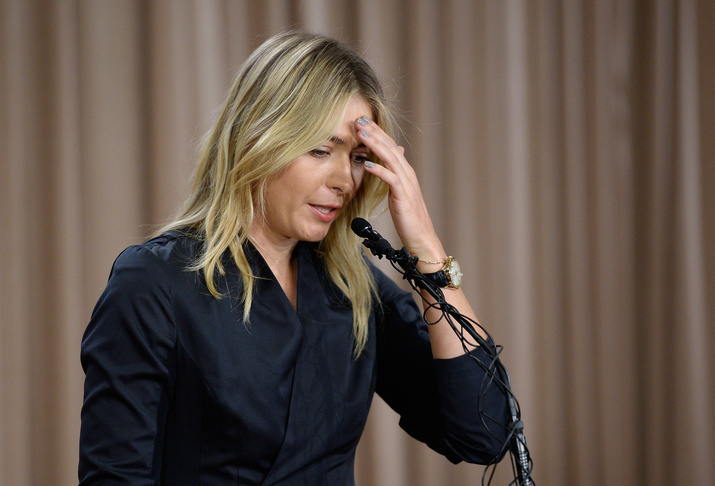Don't miss any stories → Follow Tennis View
FollowMaria Sharapova And The Wild Card Debate
There has been an ample amount of exciting tennis on offer this week, and more is sure to follow with Indian Wells just around the corner. That does not mean that the occasional off-court topic will not grab headlines, however. Maria Sharapova is set to return to competition in April following a fifteen-month ban, and she already has wild cards lined up for Stuttgart, Madrid, and Rome. In light of that, Andy Murray was recently asked what he thought of those convicted of doping violations receiving wild cards upon their return. The Scot did not mince words in stating he felt it was wrong, but his comments also illustrated both why it is an interesting topic for debate and one for which there is no clear, governing policy.

Remember it was a year ago, that Sharapova held a press conference admitting that she had failed a drug test. The ITF gave her the benefit of the doubt that her violation had stemmed from ignorance rather than being intentional and gave her a two-year ban. The Court for Arbitration of Sport later reduced that ban to fifteen months. There was a lot of information, some of it contradictory, that emerged as this all played out, and that is what has made the Russian's return so intriguing.
Certainly, from a moral standpoint, it is hard to disagree with Murray, and assuredly many fellow players from both tours agree with him. Violations should be reviewed on a case-by-case basis, and in Sharapova's case, it is hard to muster much sympathy.
The Russian's case was not a matter of picking up the wrong type of cold medicine or a potential misunderstanding with an ITF drug-testing official. This was her and her team failing to read the necessary literature provided to all players to ensure they are not taking a banned substance. Her pattern of usage, combined with the fact that she failed to disclose it on her forms and to most members of her team also suggests – at least on the surface – that on some level she believed what she was doing could be construed as unethical.
She was granted the benefit of the doubt when it came to sentencing and had the added benefit of being allowed to call a press conference so she could control the message and get out in front of it. Few players would have been granted that luxury, and it is questionable if they would have been granted the same benefit of the doubt. Furthermore, for those players who have seen their ranking plummet due to injury or are on the verge of a breakthrough, it must be like salt to a wound to be relegated to the qualifying or the Challenger level so that a wild card may be awarded to a player returning from a doping ban instead of them.

For all the righteous reasons for making a player convicted of a doping violation work their way back up the hard way, though, there is a powerful argument for rewarding them. It all comes down to money. As Murray noted in his answer, he understands where the tournaments are coming from when they give a player like Sharapova a wild card. They are a business, and like any business, they want to make money. Sharapova is a marquee player, and her name in the draw sells tickets. That is reason enough for some of the most prestigious tournaments to possibly put principles aside.
Irrespective of where one stands on Sharapova's specific situation, this scenario makes for a great debate. It is one more area where players and tournaments are apt to find themselves on opposite sides and one problem for which there will never likely be a black-and-white solution. On principle, folks may feel one way, but, at least for now and for better or for worse, money talks.










